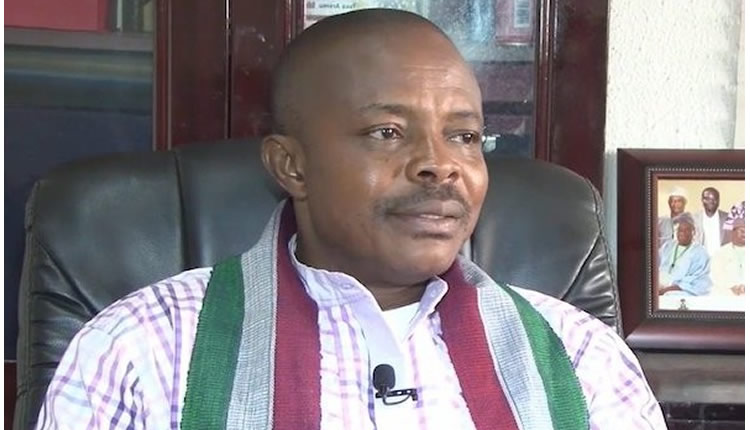
Experts have expressed divergent views on Nigeria Labour Congress’ demand for an upward increase of the country’s retirement age and years of service for civil servants, writes HENRY FALAIYE
On May 1, 2023, the President of Nigeria Labour Congress, Joe Ajaero, during the commemoration of 2023 Workers’ Day, demanded that the age of retirement and length of service in the entire public service, including the civil service, be reviewed upward from 60 years to 65 years of age and 35 years to 40 years of service.
According to Ajaero, the need to review upward the retirement age and years of service in the entire Public Service has become imperative and the extension was done in other sectors of the Public Service, and labour believes it should go round.
He argued, “Only few other establishments including the core civil service are now left out. Therefore, we are demanding that the age of retirement and length of service in the entire public service including the civil service should be reviewed upward to 65 years of age and 40 years of service, whichever comes first.”
Since the NLC president made the demand for the extension of the country’s retirement age and years of service, there have been divided opinions on the issue.
The Chief Executive Officer of the Centre for the Promotion of Private Enterprise, Dr Muda Yusuf, noted that when many civil servants were demanding for elongation of the retirement age because they can hardly do any productive venture after retirement.
He said, “Most of them cannot do business. So, even when they try to do business, most of them lose money and a lot of people scam them and give them a lot of funny business ideas and business proposals. Many of them have lost their entitlements through embarking on the wrong kind of business, because it is not easy when all your life you have been in the civil service.”
He claimed that many civil servants find it difficult to fit into some other things after their retirement.
According to him, there is some sense in NLC’s demand for the extension of retirement age and length of service.
“At least, if the workers are still fit, and healthy enough, they can stay up to 65 years before they retire from service.
“After all, judges are allowed to stay up to 70 years and in the universities, they allow them to stay up to 70 years,” he maintained.
He argued that there was already a precedent to support labour’s demand.
“Some consultants stay up to that age. The older they are the better because of years of experience,” Yusuf asserted.
According to him, if workers are healthy enough and still productive, they should be allowed to work for up to 65 years.
“Almost 90 per cent of them cannot do business. The longer they can stay the better for them as long as they are productive,” he remarked.
A Senior HR expert and Consultant, Tolu Adedayo, said, NLC demand should be considered on its merit.
According to him, some organisations tend to even reduce the retirement age so that people can retire early and start doing something on their own.
He explained that his former employer’s retirement age was 55 years. “The reason behind that is that people would still be agile so that once they leave work they can be able to do something on their own.
“What we do is to give them post-retirement business ideas and training so that before they leave paid employment, they are already trained and equipped with all they would need to survive,” he enunciated.
He noted that the reason the NLC might be demanding an upward review of the retirement age and the number of service years may be because of the condition of living, the economic situation of Nigeria.
“Ideally, I think retiring early is the way to go. If we look at France, recently, there was a national demonstration in the country, where the government was trying to increase the retirement age.
“The idea of increasing the retirement age by the French government was to reduce the pool of retirees. So, I think the way forward is to make people entrepreneurial, train Nigerians to become entrepreneurs so that they can create more jobs, support them to retire early and give them the necessary funds and training to survive after retirement,” he said.
Meanwhile, speaking with The PUNCH, the Director-General of the African Centre for Supply Chain and President of the Association of Outsourcing Professionals, Dr Obiora Madu, said the issue of whether the retirement age and length of service should be reviewed was insignificant.
Madu said, “Productivity should be the main issue.”
According to him, extending retirement age and length of service would have an adverse impact on productivity.
He further explained that what should be bothering Nigeria Labour Congress was the productivity of the civil servants, adding that they should be asking for a living wage and leaving the system at the appropriate time.
“We are talking about an unemployment rate of about 33 per cent, where will those people go to work if they extend the retirement age and length of service of civil servants?” he queried.
For an HR and talent acquisition expert, Victor Oyesina, it was one thing to declare publicly to demand the retirement age to be 65 years and the length of service in the public sector to be 40 years, it was another to follow the declaration or proposal with designing the systems and processes that would allow the reason for that extension to stand.
According to him, the government does more talking than acting.
“Are they ready to design the systems that would make those things happen?
“To get this done, labour must wait for the new government to come in because the current administration is ending already.”
Oyesina further stated that the timing was not right because nobody knew the kind of people that would be appointed in the Ministry of Labour and Productivity.
“It is good to put that in the air so that the incoming government is aware. And of course, it will still go through different bills in the National Assembly.
“It is good that NLC was raising awareness. Awareness is the place to start from and let us see how the implementation unfolds,” he said.
A fellow of the Chartered Institute of Personnel Management of Nigeria and former General Secretary of the Bible Society of Nigeria, Dr Dare Ajiboye, noted that there was a need to consider the country’s life expectancy rate before an upward review of retirement age and years of service.
“Currently, what is the country’s average life expectancy? The life expectancy for Nigeria is between 50 and 55 years and they are demanding for the pension age to be 65 years and number of years to service to 40 years,” he averred.
According to him, one needs to look at the rationale behind the demand and how realistic it is.
“It means if life expectancy is 55 years, at the age of 45 – 50 years one is already wearing out.
“What happens to the productivity of people when they are 65 years. Would they still be productive as expected?” he wondered.
He maintained civil servants were demanding for an upward review of retirement age because their jobs were less strenuous when compared with the private organisations, where workers struggle to meet targets.
“At the age of 65, it would be difficult for people to be very productive,” Ajiboye submitted.
The current debate about retirement age and length of service is not limited to Nigeria. While the country’s labour union is demanding for an upward review of the retirement age, their counterparts in France kicked against their government’s plans to add two years to the country’s 62 years retirement age. French workers were vehemently against the extension that hundreds of them took to the street to protect against the proposal in April.
Recently, the UK government said it was considering raising the retirement age to 68 years by 2035 from the current 60 years. The proposals, if approved, would affect current workers under the age of 54.
Meanwhile, some of the country’s lawmakers had warned the Prime Minister and Chancellor that they were ‘playing with fire’ with the proposal to raise the retirement age to 68.
Reports have it that millions of Britons could work for longer under government plans to raise the retirement age to 68 by 2035.
According to reports, it has been revealed the proposal was tipped to be announced in the March Budget and would affect those born in the 1970s and later.
Prime Minister Rishi Sunak and Chancellor Jeremy Hunt have both been warned by backbench MPs they are ‘playing with fire’ before the next general election.
According to the proposal, it was estimated by the Treasury to be worth millions to the UK’s struggling economy. Already, hundreds of thousands of workers have decided to cut back on pension contributions to help pay for rising food and energy prices amid a cost-of-living crisis.
The different reactions that have greeted proposals for retirement age review is a clear case of different strokes for different folks.





